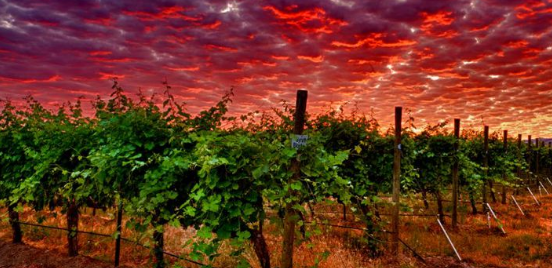In excess of 150 Washington wineries will pay new expenses and probably have higher working expenses in light of the fact that the state Department of Ecology says that while they have not dirtied groundwater, they could.
Enormous and average sized wineries will require a wastewater-release grant like those expected of producers. Nature settled the principles a year ago however didn’t set expenses until June 26. The charges become effective on July 27.
Family Wineries of Washington President Paul Beveridge said Friday that the association couldn’t destroy together the cash to advance the standards, yet exhorted wineries to consider taking on Ecology exclusively.
“Because we couldn’t challenge the guidelines doesn’t mean you can’t provoke the particulars to your winery,” he said. “This is extremely an overstretch. … They have not demonstrated an effect on the waters of the state.”
The guidelines will apply to wineries that make in any event 17,835 gallons of wine or squeeze a year. Guidelines will constrain inundating with water reused in the wake of cleaning bottles, barrels, tanks and other hardware. The principles additionally manage capacity lakes and watering dusty streets.
Winery wastewater bound with cleaning synthetic substances and the natural issue could contaminate, as indicated by Ecology. A representative affirmed June 28 the office has not recorded such a case.
Biology set the charges on wineries as a major aspect of a more extensive revising of expenses on in excess of 6,300 organizations and sewer plants that as of now have grants to release contaminations. A few makers, including nourishment processors and natural product packers, will have charges go up 4.62% on July 1 and 5.43% next year.
Without the charge expands, Ecology says it would need to cut staff, expanding the odds organizations will disregard their grants and conceivably harm the earth.
An office financial analyst reasoned that higher expenses will profit the economy by making open division employments.
“That takes a great deal of chutzpah,” said Beveridge, who said he’s surrendered designs to grow his little Seattle winery since it would be too costly to even consider complying with Ecology’s standards for wineries.
“My arrangement was to get greater and leave something for my child,” he said. “Since this turned out, I chose not to attempt.”
The expense for a winery grant will run from $296 per year to $33,196, contingent upon generation. Around 16 enormous wineries as of now were required to have wastewater licenses. With fair sized wineries paying into the framework, some huge wineries will most likely save money.
Wineries likewise will bear costs identified with composing and following contamination control plans, putting away wastewater, observing water quality and answering to Ecology.
In an examination of the higher wastewater license charges, Ecology’s market analyst figured they will make 17 open part occupations the main year and later.
“This is the manner by which an expansive based arrangement of consistency costs (essential expenses) results in an advantage to the state economy,” as per the examination.
The development in open division employments will bring forth increasingly open part occupations, as indicated by the investigation.
“Because of this demonstrated development in the state economy, the open division likewise develops and utilizes more individuals. Thus, on the grounds that the model gatherings all open area movement, we can’t further refine wherein the open part these activity increases will happen. In view of model structure, they are probably going to be over a wide arrangement of kinds of government (bureaucratic, state, area, city), however, to incorporate Ecology,” the examination states.
Beveridge said his winery most likely won’t be the only one to remain little to stay under the 17,835-gallon edge.


